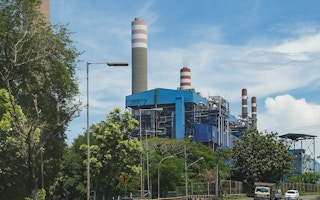The climate crisis has caused ecological disasters in various parts of the world. Fossil energy, such as oil, gas and coal, is the main contributor to the climate crisis, accounting for over 75 per cent of global greenhouse gas (GHG) emissions. The energy transition is one of the efforts to mitigate GHG emissions. Indonesia, as the world’s largest coal exporter, must be involved in this energy transition.
Last year, the Indonesian government announced a new energy transition funding mechanism called the Just Energy Transition Partnership (JETP). In this funding mechanism, several G7 member countries will provide funds amounting to US$20 billion for Indonesia’s energy transition.
JETP will significantly accelerate Indonesia’s transition to reduce cumulative GHG emissions by more than 300 megatonnes by 2030 and over 2 gigatonnes by 2060 from Indonesia’s current projections.
However, Indonesia’s upcoming legislative and presidential elections in 2024 has added uncertainty to the implementation of JETP. The problem in Indonesia is that the owners of capital, or the oligarchs, have an influential role in making strategic policies in Indonesia whoever the president is, including in the energy sector. President Joko Widodo, popularly known as Jokowi, is not part of the oligarchy but they are in his circle.
The influence of oligarchs in the presidential circle can be seen from some of the government’s policies in the energy sector that protect the interests of investors in the fossil industry. Prior to the launch of JETP, President Jokowi issued Presidential Regulation Number 112 concerning the Acceleration of Development of Renewable Energy for the Provision of Electricity. Ironically, this regulation that supposedly encourages renewable energy use provides protection for the coal industry.
The 2022 presidential regulation still opens space for plans to build previously planned coal-fired power plants included in the national Electricity Supply Business Plan 2021-2030 that can operate until 2050. Power plants using fossil energy will continue to make up 48.4 per cent of Indonesia’s power capacity, according to the Minister of Energy and Mineral Resources Arifin Tasrif.
Based on the 2021-2030 Electricity Supply Business Plan, at least 39 new coal-fired power plants with a capacity of 13.8 gigawatts (GW) can still be built between 2021 and 2030.
Currently coal-fired power plants are causing an oversupply of electricity in Indonesia. In 2021, the electricity capacity was 349,000 GW hours (GWh) while the electricity sold during that period was only 257,000 GWh, meaning there was a difference of 26.3 per cent according to data from the Institute for Development of Economics and Finance (INDEF). This oversupply has forced the State Electricity Company to issue regulations limiting the use of solar energy on a household scale, a policy that goes against the spirit of the energy transition.
The influence of oligarchs in the energy sector can also be seen in the funding policies of state-owned banks. A joint report by 350 Indonesia and other civil society groups revealed that Bank Mandiri, Indonesia’s largest state-owned bank, issued US$3.19 billion in loans to 10 coal companies between 2015 and 2021. In the same period, two other state-owned lenders, Bank Rakyat Indonesia and Bank Negara Indonesia provided loans of US$122.5 million and US$53.4 million respectively to coal companies. State-owned banks should be at the forefront of funding for renewable energy, yet they continue to choose to fund dirty coal energy.
Looking ahead to the 2024 legislative and presidential elections, Indonesia will enter a political year where oligarchs in Indonesia will start providing funds for the campaigns of legislative and presidential candidates to secure their business interests, including those in the fossil energy sector. This has added uncertainty to the implementation of JETP.
Will the new president, under the results of the 2024 presidential election, remain committed to carrying out the current energy transition or cancel all energy transition initiatives?
There is no definite answer to the above question. It is possible that the government that has just been elected is more committed to the energy transition, but it could also be the other way around. The more funding from oligarchs in the fossil energy business for legislative and presidential candidates in the 2024 election, the stronger the influence will be on the new government and the possibility for them to reject the energy transition agenda.
If the new government resulting from the 2024 elections prefers to carry out the oligarch agenda, it will be difficult for Indonesia to get out of its dependency on fossil energy. Even if the new government does not directly reject the energy transition agenda, they could offer a false solution in the form of clean coal technology to extend the use of fossil energy.
The next question is how do the G7 countries, as donor countries, respond to the uncertainty of JETP implementation in Indonesia?
The G7 countries should not remain silent in view of the uncertainty regarding the implementation of JETP in Indonesia. As donor countries, they must ensure that the implementation of JETP runs properly in Indonesia. The G7 countries must start monitoring the policies of the Indonesian government that are contrary to the spirit of the energy transition. If the G7 countries choose to remain silent in view of the uncertainty in implementing JETP, it means that they are wasting public funds to finance a failed programme.
Firdaus Cahyadi is the Indonesia team leader for the climate campaign group 350.org.









